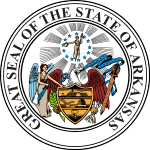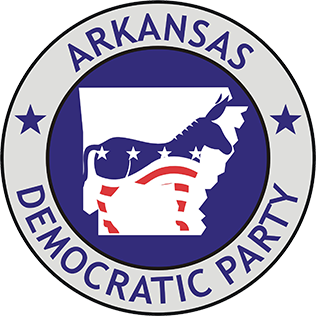| |||||||||||||||||
| |||||||||||||||||
 County results Futrell: Contents
Did not win any counties | |||||||||||||||||
| |||||||||||||||||
| Elections in Arkansas | ||||||||||
|---|---|---|---|---|---|---|---|---|---|---|
 | ||||||||||
| ||||||||||
The 1932 Arkansas gubernatorial election was held on November 8, 1932, to elect the Governor of Arkansas, concurrently with the election to Arkansas's Class III U.S. Senate seat, as well as other elections to the United States Senate in other states and elections to the United States House of Representatives and various state and local elections.
The three classes of United States Senators are made up of 33 or 34 Senate seats each. The purpose of the classes is to determine which Senate seats will be up for election in a given year. The three groups are staggered so that senators in one of the groups are up for election every two years, rather than having all 100 seats up for election at once. For example, the 33 Senate seats of class 1 were up for election in 2018, the elections for the 33 seats of class 2 will take place in 2020, and the elections for the 34 seats of class 3 will be held in 2022.
Incumbent Democratic Governor Harvey Parnell had won office in 1928, and reelection in 1930. During this period, it was customary for governors to be reelected to a second term, but only one governor, Jeff Davis, had served three terms since Reconstruction. In the Solid South, winning the Democratic primary was tantamount to election, a trend that resulted in Democratic control of the Arkansas Governor's Mansion from 1874 to 1967. Chancery judge Junius Marion Futrell won a seven-candidate primary, and was nominated by the party despite insisting he did not want the position. The Republicans nominated James O. Livesay, a lawyer from Foreman in Little River County, who had also been the gubernatorial nominee against Harvey Parnell in 1930.

The Democratic Party is one of the two major contemporary political parties in the United States, along with the Republican Party. Tracing its heritage back to Thomas Jefferson and James Madison's Democratic-Republican Party, the modern-day Democratic Party was founded around 1828 by supporters of Andrew Jackson, making it the world's oldest active political party. The Democrats' dominant worldview was once social conservatism and economic liberalism while populism was its leading characteristic in the rural South. In 1912, Theodore Roosevelt ran as a third-party candidate in the Progressive Party, beginning a switch of political platforms between the Democratic and Republican Party over the coming decades, and leading to Woodrow Wilson being elected as the first fiscally progressive Democrat. Since Franklin D. Roosevelt and his New Deal coalition in the 1930s, the Democratic Party has also promoted a social liberal platform, supporting social justice.
Harvey Parnell was a farmer and politician from Southeast Arkansas. Parnell served in the Arkansas General Assembly for eight years, first in the Arkansas House of Representatives, and later serving a term in the Arkansas Senate. Following the re-establishment of the lieutenant governor position, Parnell won the statewide election and served under Governor John Martineau. When Martineau resigned to take a federal judgeship in March 1928, Parnell was elevated to become the state's 29th governor, a position he would hold until 1933. Early in his time as governor, Parnell was responsible for Progressive reforms popular with rural voters, including expansion and modernization of the highway system and public school reform. But as the Dust Bowl and Great Depression ravaged the Arkansas economy, Parnell's programs were blamed for bankrupting the state, and his popularity plummeted. He left politics after his second full gubernatorial term ended in January 1933.

Jeff Davis was a Democratic politician who served as the 20th Governor of Arkansas from 1901 to 1907 and in the United States Senate from 1907 to 1913. He took office as one of Arkansas's first New South governors and proved to be one of the state's most polarizing figures. Davis used his silver tongue and aptitude for demagoguery to exploit existing feelings of agrarian frustration among poor rural white farmers and thus build a large populist appeal. However, since Davis often blamed city-dwellers, blacks and Yankees for problems on the farm, the state was quickly and ardently split into "pro-Davis" or "anti-Davis" factions.
Futrell defeated Livesay in a landslide election, and would win reelection in 1934. Though the office remained within the Democratic party, the election represented a realignment in favor of the conservative wing of the party. Futrell was the most conservative governor elected in decades, with 1932 marking the end of the reform era in Arkansas. [3]
A realigning election is a term from political science and political history describing a dramatic change in the political system. Scholars frequently apply the term to American elections and occasionally to other countries. Usually it means the coming to power for several decades of a new coalition, replacing an old dominant coalition of the other party as in 1896 when the Republican Party (GOP) became dominant, or 1932 when the Democratic Party became dominant. More specifically, it refers to American national elections in which there are sharp changes in issues, party leaders, the regional and demographic bases of power of the two parties, and structure or rules of the political system, resulting in a new political power structure that lasts for decades.














